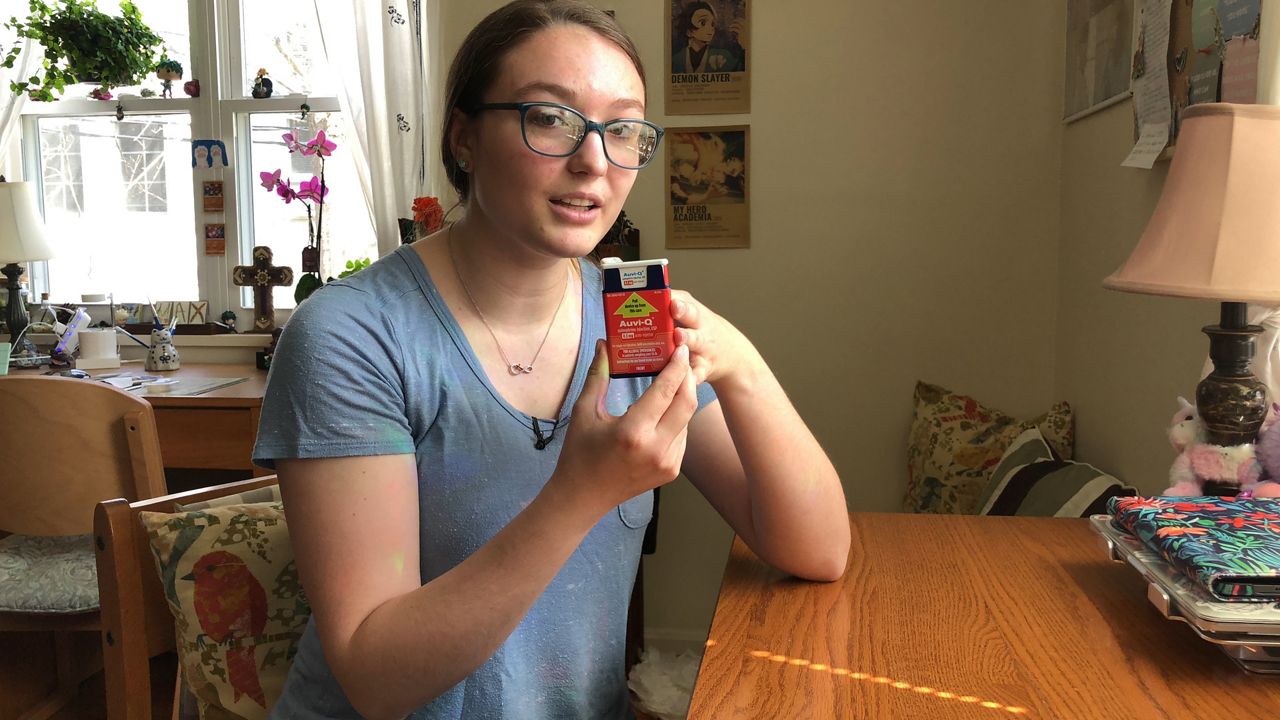DANVILLE, Ky. — A central Kentucky student is shedding light on living with food allergies.
What You Need To Know
- This week is Food Allergy Awareness Week
- Food Allergy Research and Education is kicking off Living Teal Food Allergy Awareness Week
- In the 10 years since FARE’s launch, they’ve created a national registry of food allergy patients
- A Danville student has made it her mission to draw attention to the issue
Olivia-Marie Robinson made it a mission to draw awareness and spread education on the issue after developing numerous allergies since childhood.
It’s in part of Food Allergy Research and Education this week. They’re kicking off Living Teal Food Allergy Awareness Week. It has raised awareness, educated the public, and expanded more about food allergies.
In the 10 years since FARE’s launch, they’ve created a national registry of food allergy patients.
Dietitian Tiffany Leon said there are about 32 million Americans that live with food allergies.
“Teenagers and young adults with food allergies are at the highest risk of fatal food-induced anaphylaxis,” Leon said. “And this is likely due to this group engaging in risk-taking behavior such as not disclosing their food allergy, not carrying their Epinephrine, eating food without checking the label or maybe dining out of home.”
In addition, Leon said one in three kids experience bullying because of food allergies.
FARE continues to educate K-12 schools and restaurants on becoming more food allergy-friendly spaces.
“I usually have to carve out my own time. It cuts into study time, some but it’s what I have to do,” Robinson said.
On this day, Robinson cut potatoes and prepped chicken for her next meal.
“I usually have to make a lot of leftovers and make a lot of food myself to prepare for the week. Because I don’t have the luxury of getting it whenever I can,” Robinson said.
It’s her lifestyle at this point. She’s allergic to a lot of common foods and spices.
“I’m allergic to peanuts, tree nuts, red dye, garlic, cinnamon, onions, pumpkin, and all uncooked fruits, and vegetables—like I got them all,” Robinson said.
Her allergies developed at age 8.

“In elementary school, it was difficult because I was just learning how to deal with my food allergies and my mom was just handling tying to educate herself about food allergies and what to do, how to work through those problems like for me and her,” Robinson said.
Her journey required reading every food label and having conversations with people about what she could or could not eat. But the allergies affected her beyond her diet.
“Socially, I didn’t get invited to as many sleepovers or birthday parties because it was difficult to feed me and often families didn’t want me to feel excluded even though that’s exactly what was happening,” Robinson said.
It drove her to be more empowered and a self-advocate, especially in her junior year at Centre College in Danville.
“Part of every college student’s life is wanting to study abroad, and I got into this really cool study abroad program I had communicated with the people in charge about my food allergies and everything about it and then I had a more detailed meeting with them after I was accepted into the program,” Robinson said.
That acceptance to the New Zealand study abroad program became short-lived.
“But then, due to my food allergies, they decided that I was no longer welcome on their program,” Robinson said. “That really broke my heart because food allergies are not something that I can change about myself.”
Spectrum News 1 reached out to Centre College, which said they offered two safer alternatives to cater to Robinson’s allergy needs: an option to study abroad in France, living in an apartment with brand new pots and pans for cooking meals, or Lake Tahoe, California.
Robinson chose Lake Tahoe and pledged to get more involved in FARE, an organization dedicated to Food Allergy Research and Education.
“I want to be invited to places. I feel like people shouldn’t view food allergies as like a reason not to invite somebody to something because if I really enjoy the company and want to come, then I’ll find a way,” Robinson said. “I usually try to check with restaurants beforehand to see if they have allergy-friendly menus or if there’s a way we could arrange like a special meal for me in advance.”
“And if that’s not possible, I’ll just bring my own food, so I think the invitation’s really important cause it means a lot.”



